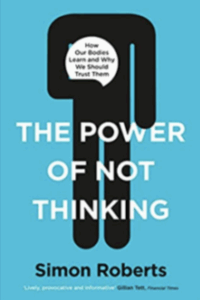Truffles, anyone?

Provence, 2011.
Quote of the Day
”There are many people for whom ‘thinking’ necessarily means identifying with existing trends.”
- Marshall McLuhan
Musical alternative to the morning’s radio news
Boccherini | La música nocturna dels carrers de Madrid (Night Music of the Streets of Madrid) | DeltaChamber Music Festival, 2023
Extraordinary piece with an interesting history.
Long Read of the Day
Law ≠ Power
An interesting essay by the legal scholar Rebecca Roiphe on the strange irony of seeing the liberal critique of law as the servant of the powerful has resulted in its weaponisation by Trump and his enablers.
Trump has declared war against the American legal system—and, for the most part, institutions have caved to him. Collectively, nine firms have agreed to donate almost a billion dollars in legal fees to the administration’s preferred causes. As heinous as Trump’s actions are, and without minimizing the severity of his attacks, it is important to acknowledge an uncomfortable truth—that legal institutions themselves bear a significant measure of blame. In the recent past, law schools and the profession as a whole have had an unfortunate tendency to portray the law as nothing more than an instrument of power. And the profession is now experiencing buyer’s remorse in seeing how similar that doctrine is to Trump’s vision…
Worth your time.
(Note for non-mathematicians: the symbol ≠ in the title means “is not equal to”.)
So many books, so little time

I came across this recently, when musing on the absurdly impoverished view of ‘intelligence’ that is implicit in current discourses about ‘AI’.
It was this review by the anthropologist Gerald Lombardi that alerted me to it.
In The Power of Not Thinking: How Our Bodies Learn and Why We Should Trust Them, Simon Roberts aims to resuscitate the human body from the sepulchre of Western thought, where Descartes and his successors presumably buried it, and to correct popular misconceptions about how we generate knowledge. In the author’s words:
“Our intelligence does not just arise from our brains… nor can it be programmed as a set of rules or propositions that enables us to think in particular ways or perform particular actions. Instead, our understanding of the world arises from our bodies’ interactions with and perceptions of the world – and it is through these interactions that our bodies acquire knowledge.”
My commonplace booklet
The FT journalist Melissa Heikkilä had the nice idea of asking the various big LLMs for their opinions on a number of tech moguls. Here’s what they ‘thought’ about Mark Zuckerberg, the Supreme Leader of Meta (neé Facebook):
ChatGPT4o
Mark Zuckerberg is a relentless, data-driven leader who prioritizes scale, control, and long-term dominance, often at the expense of public trust. His greatest weakness is a persistent tendency to downplay ethical risks and social consequences in pursuit of aggressive growth and platform expansion.
Meta Llama 4
Mark Zuckerberg is a transformational leader who embodies multiple leadership styles, including autocratic, laissez-faire, servant, and visionary leadership, making him a unique and effective leader. Mark Zuckerberg’s greatest weakness might be his reported tendency to be a bad listener and overly controlling at times, which can impact his ability to effectively lead and manage his team.
Grok 3
Mark Zuckerberg is a visionary but controversial leader who drives innovation at Meta with a focus on connectivity and technology, though his leadership has faced criticism for privacy scandals and centralized control. His greatest weakness is a perceived lack of transparency and accountability, especially in handling user data and addressing ethical concerns around AI and social media.
Claude Sonnet 3.7
Mark Zuckerberg is a determined, product-driven leader who maintains tight control over his company’s direction, blending technical understanding with relentless competitiveness. His greatest weakness is a tendency to prioritize growth and competitive positioning over addressing the societal implications of his platforms, repeatedly underestimating how technologies his company deploys can amplify harmful content, privacy violations, and social division.
Gemini 2.5 Pro
Mark Zuckerberg’s leadership style is often described as transformational, visionary, and at times, aggressive, focused on innovation and growth while encouraging a relatively flat organizational structure. Based on available information, a notable weakness attributed to Mark Zuckerberg includes facing criticism regarding privacy issues, the spread of misinformation on his platforms, and a perceived lack of accountability.
Deepseek
Mark Zuckerberg is recognized as a transformational and visionary leader who fosters innovation by empowering employees, though he can also be seen as aggressive and demanding in pursuing long-term objectives. His greatest weakness is often identified with Meta’s ongoing challenges concerning user data privacy, content moderation complexities, and the erosion of public trust and increased regulatory scrutiny.
Interesting: none of them thought to mention how creepy he is.
This Blog is also available as an email three days a week. If you think that might suit you better, why not subscribe? One email on Mondays, Wednesdays and Fridays delivered to your inbox at 5am UK time. It’s free, and you can always unsubscribe if you conclude your inbox is full enough already!
